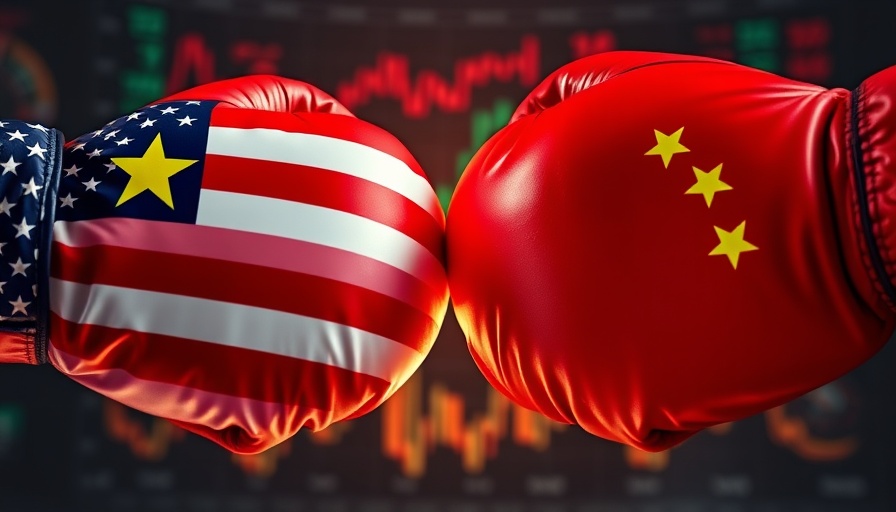
Escalating the U.S.-China Trade War
The trade tensions between the U.S. and China have intensified significantly following President Donald Trump's announcement of a staggering 50% tariff on Chinese imports. This move is a counter-response to China's existing 34% counter-tariff, which has been part of a larger pattern of retaliatory measures in this protracted trade conflict. The stakes have never been higher as both nations dig in their heels, with the Chinese Ministry of Commerce declaring its intent to "fight to the end," signaling vehement resistance to U.S. demands.
Understanding China's Strategic Countermeasures
As the U.S. ramps up its tariffs, analysts speculate on China's potential strategies for retaliation. Noteworthy among these strategies are higher tariffs on U.S. agricultural exports such as soybeans and sorghum, which could have dire implications for American farmers who heavily rely on Chinese markets. Additionally, proposed bans on U.S. poultry imports and the suspension of cooperation on fentanyl—a public health concern threatening both nations—exemplify China's multifaceted approach to countermeasure tactics in this ongoing economic spat.
The Broader Implications for Middle-Class Consumers
For the average American consumer, particularly those in the mid-to-affluent income brackets, the trade war has tangible effects. Increased tariffs translate into higher prices on everyday goods, which disproportionately impact households already facing inflationary pressures. This economic ripple effect may further exacerbate existing financial strains on families simply trying to make ends meet.
Future Predictions: The Path Ahead
With both economies entrenching their positions, the likelihood of de-escalation appears slim unless a diplomatic solution is reached. As we advance, experts predict that these tariffs could permanently shift trade dynamics, forcing consumers to brace for changes in product availability and price volatility. Addressing these challenges head-on requires not only political will but also a commitment to understanding the intricacies of global trade dependencies.
 Add Row
Add Row  Add
Add 




 Add Row
Add Row  Add
Add 



Write A Comment